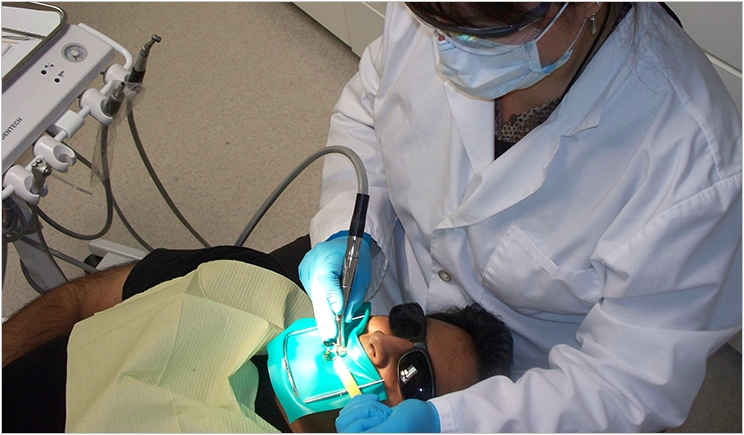
The North Dakota House defeated House Bill 1256 on Wednesday, February 8, which would have allowed mid-level oral healthcare providers also known as dental therapists to obtain licenses and treat patients. Under the bill, dentists would have remained responsible for the quality of care that their employees provide, and no dentist would have been required to hire dental therapists.
“The North Dakota House affirmed our position that the dental therapy model does not fit North Dakota at this time and that we should continue to focus on education, prevention, collaboration, and outreach specific to our state—strategies that are showing results,” said Brent L. Holman, DDS, executive director of the North Dakota Dental Association.
“By voting to continue North Dakota’s blockage of dental therapists, House lawmakers deprived dentists of their right to hire and patients of their right to choose qualified providers who would have lowered oral healthcare costs and increased access,” said Michael Hamilton, research fellow of healthcare policy at the Heartland Institute.
The bill would have required dental therapists to graduate from an accredited dental therapy education program and pass exams administered by the state’s dental board. Also, dental therapists would have been required to complete 500 hours of clinical practice under the supervision of a dentist to qualify for licensure.
Also, the bill outlined a series of procedures that dental therapists would have been allowed to perform under supervision of a dentist, including but not limited to application of topical disease prevention agents; preparation and placement of direct restorations; extractions of primary teeth; extractions of some badly diseased permanent teeth; pulpotomies; preparation and placement of some crowns; direct pulp capping; and suturing and suture removal.
In January, the Heartland Institute and the Texas Public Policy Foundation released a joint policy brief titled “The Case for Licensing Dental Therapists in North Dakota.” According to the Heartland Institute, dental therapy is a 95-year-old profession used in more than 50 countries to expand oral care services to underserved patients in rural and low-income regions.
The organizations also report that nearly 10% of the state’s population live in 35 areas with dental health professional shortages. A third of all residents age 65 years and older with teeth needed “early or urgent dental care” in 2016. And, 72% of children on Medicaid in the state in 2015 did not use preventive dental care, even though they were eligible.
“All the House accomplished by banning dental therapists was blowing up a bridge by which innovative dentists might have reached underserved patients,” said Hamilton. “The entrenched interest special interest groups of dentists who opposed this measure may now congratulate themselves for robbing each other of a chance to innovate, grow their practices, and treat needy patients.”
The ADA opposes the authorization of non-dentists to perform surgical procedures. While the organization acknowledges the challenges in providing dental care to everyone, it notes the growing numbers of practicing dentists and believes efforts should focus on better connecting patients with them.
Maine, Minnesota, and Vermont all allow dental therapists, while Washington and Oregon have authorized access to midlevel dental providers for native tribes while considering their use statewide. Alaska native tribes also have authorized dental therapy. Arizona, Hawaii, Kansas, Massachusetts, New Hampshire, New Mexico, and Texas all are now exploring the issue.
“Lawmakers in North Dakota chose to look backward, not forward, by rejecting dental therapy as an option for the people of their state,” said John Davidson, senior fellow with the Texas Public Policy Foundation and a policy advisor with the Heartland Institute. “Liberalizing the dental workforce so that more people have access to basic dental care is the wave of the future.”
Related Articles
Dental Therapist Classification Established in Vermont
Expanded Roles for Hygienists Improve Populations’ Oral Health
Dental Therapists to See Greater Use in Native American Programs











